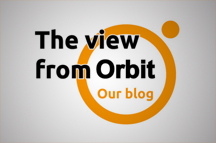 As Scottish Labour gears up for its Spring Conference in Perth on Friday, we look at what to expect from the political parties as party season begins in full swing.
As Scottish Labour gears up for its Spring Conference in Perth on Friday, we look at what to expect from the political parties as party season begins in full swing.
With Council elections on 4th May, this will be seen as a platform for the parties to inject some much-needed energy into that contest, as well as constitutional shenanigans naturally taking centre stage.
Scottish Labour
Scottish Labour will be gathering in Perth (24th to 26th February). With Jeremy Corbyn in attendance, the results of by-elections in the Labour heartland seats of Stoke-On-Trent Central and Copeland on Thursday will clearly have an impact on the conference mood.
It should be remembered – but don’t expect this to be said at the conference – that Scotland was the only part of the UK where Owen Smith beat Jeremy Corbyn in the leadership election in September 2016.
The party, which is expected to lose heavily at the Council elections in May and dropped to third in the Scottish Parliament elections will be reinforcing its pro-Union credentials (with a dose of federalism). Attacks will be made by leader, Kezia Dugdale, on the Tories for “endangering the Union” through Brexit and the SNP for, well, doing exactly the same.
Expect the impact of Council budget cuts, as well as the state of the education and health systems to also be very much centre stage.
Scottish Conservatives
 The Scottish Conservatives gather in Glasgow (3rd to 4th March) and while it is not yet confirmed whether Theresa May will be in attendance, all eyes will be on Ruth Davidson who steered her party to second place in the Scottish Parliament elections, leapfrogging Labour.
The Scottish Conservatives gather in Glasgow (3rd to 4th March) and while it is not yet confirmed whether Theresa May will be in attendance, all eyes will be on Ruth Davidson who steered her party to second place in the Scottish Parliament elections, leapfrogging Labour.
The constitutional situation will, of course, be very much to the fore, with the Tories positioning themselves as the only true “defenders of the Union”, a platform that brought them success in the Scottish Parliament elections
However, there will be some focus, with an eye to the Council elections, to Scotland being the “highest tax part of the UK”, as well as rises in Council tax and business rates.
That other constitutional matter will of course have to rear its head, that of Brexit. And while conference speeches of the past were very much aligned to the pro-Remain side, this time the line will be very much of making Brexit ‘work’, while attacking the SNP for exploiting this as an excuse to ‘break-up’ the UK.
Scottish Liberal Democrats
Like Scottish Labour the Scottish Lib Dems gather in Perth and not only Willie Rennie, but former UK party leader, Nick Clegg, will also be in attendance.
The constitution will be the main topic of debate, with a call for a “Brexit deal referendum”, playing up to both pro-EU and pro-UK credentials.
Buoyed up by some recent by-elections wins the Lib Dems will be talking up their chances in the Council elections.
Scottish Greens
Like the Scottish Conservatives, the Scottish Greens gather in Glasgow. Their event is a day conference on 11th March. Leader, Patrick Harvie, will bask in his roles as ‘kingmaker’ over the issue of the budget deal with the SNP, but there will be concerns over the inclusion of the air departure tax in the budget and its environmental impact.
There will also be talk of taking forward their success from the Scottish Parliament elections into the Council elections.
SNP
The SNP head to Aberdeen for their conference (17th to 18th March). While Nicola Sturgeon and Angus Robertson will be the main speakers, there will undoubtedly be appearances from conference favourites John Swinney, Alex Salmond and Mhairi Black.
Independence, naturally, will take centre stage, especially in the context of Brexit and an ‘almost inevitable’ second independence referendum.
Will the announcement be made to hold another independence referendum? I think not but, this will all depend on whether Article 50 has been triggered by then. There may well be a pledge to pursue a Section 30 order, to allow the vote to take place.
The announcement of some preliminary findings of Andrew Wilson’s long-awaited Growth Commission may also be on the cards.
The mood will be high in expectation of sweeping gains in the Council elections, as well as a staunch defence of the SNP’s decade in power.












